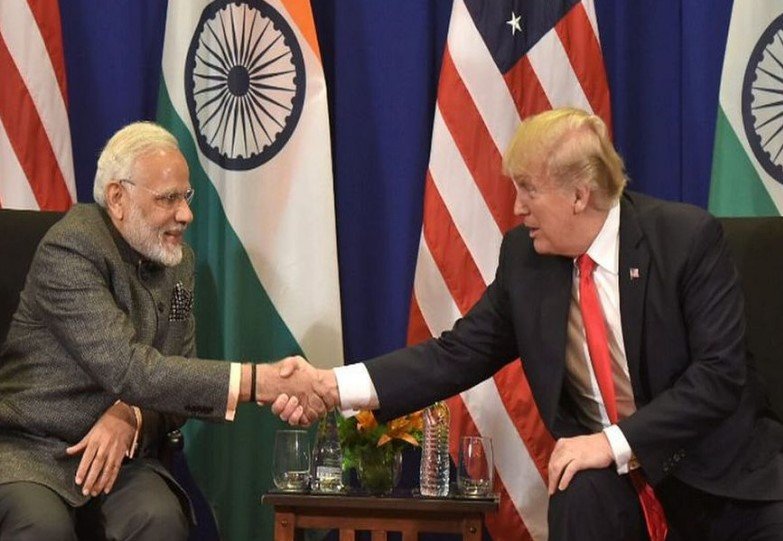Historic Step to Strengthen US-India Bilateral Ties and Boost Nuclear Collaboration
In a landmark announcement during his visit to India, US National Security Advisor Jake Sullivan confirmed that the United States is finalizing the removal of longstanding regulations that have previously restricted civil nuclear cooperation between Indian entities and US companies. This move marks a significant leap in the strengthening of US-India relations and aims to unlock new opportunities for collaboration in the nuclear energy sector.
Historic Shift in US-India Civil Nuclear Cooperation
The decision, hailed as a “major step” in advancing the bilateral partnership, will allow Indian nuclear entities, which have been previously restricted due to regulatory hurdles, to now engage with American private sector players, scientists, and technologists. Sullivan made this announcement at the Indian Institute of Technology (IIT) Delhi, stressing that the move is long overdue and will usher in a new chapter for US-India relations.
Speaking at IIT Delhi, Sullivan acknowledged that nearly two decades ago, former US President George W. Bush and former Indian Prime Minister Manmohan Singh had envisioned civil nuclear cooperation between the two countries. However, despite this vision, the full realization of such cooperation had remained stalled for years due to regulatory barriers.

“We have yet to fully realize the vision laid out by President Bush and Prime Minister Singh nearly 20 years ago. But today, under the Biden administration, we are ready to take the next major step,” Sullivan said. This change is set to open doors for greater collaboration in the civil nuclear energy field, benefiting both nations.
What Does This Change Mean for India’s Nuclear Sector?
The decision to lift these regulations allows Indian nuclear entities that were previously on US restricted lists to now collaborate freely with American companies. This shift will have significant implications for India’s nuclear energy goals, particularly in terms of accessing cutting-edge technologies, expertise, and investments from US private companies.
The lifting of restrictions is expected to bring forward new opportunities for joint ventures, research, and technology exchange in the nuclear energy field. The US, known for its advanced nuclear technology, could provide crucial support to India as it seeks to expand its nuclear energy capabilities to meet growing energy demands.
India’s nuclear sector will also benefit from access to American scientific and technological advancements, which could accelerate progress in areas like nuclear safety, waste management, and reactor design. Additionally, it opens the door for greater participation of US private companies in India’s nuclear industry, driving growth, innovation, and job creation in both nations.
A Turning Point for US-India Strategic Partnership
Jake Sullivan’s announcement highlights the significant progress made in US-India strategic relations, particularly in the last few years. Over the past four years, India’s transparent engagement with the United States has played a crucial role in reshaping the two countries’ bilateral relationship, moving beyond historical frictions.
“The United States is now finalizing the necessary steps to remove longstanding regulations that have prevented civil nuclear cooperation between India’s leading nuclear entities and US companies,” Sullivan stated. His words indicate that the two countries have finally overcome the regulatory hurdles that have previously slowed down collaboration in the nuclear energy sector.
Sullivan’s comments underscored that the formal paperwork required to lift the restrictions is nearing completion, signaling that the US-India nuclear partnership is poised for a major overhaul. This shift, which removes restrictions on entities previously limited by US regulations, will allow for deeper cooperation in nuclear technology and research.
What’s Next for the US-India Nuclear Partnership?
As the necessary paperwork is finalized, both nations are preparing to chart a new course in civil nuclear cooperation. This development not only symbolizes the growing bond between the two countries but also reflects broader global shifts in energy policy, particularly as nations seek to adopt more sustainable and clean energy solutions.
The new era of nuclear collaboration will likely also bring new economic opportunities, with both the US and India positioned to benefit from the growing nuclear energy market. As India continues to increase its reliance on nuclear power, this collaboration could set the stage for new innovations that could be applied to energy projects worldwide.
Jake Sullivan’s visit and announcement highlight a critical juncture in the US-India partnership, offering a glimpse into the future of energy cooperation between the two nations. Moving forward, there will likely be increased emphasis on technology exchange, nuclear safety, and regulatory alignment to ensure that both countries reap the benefits of this new phase in their nuclear partnership.
